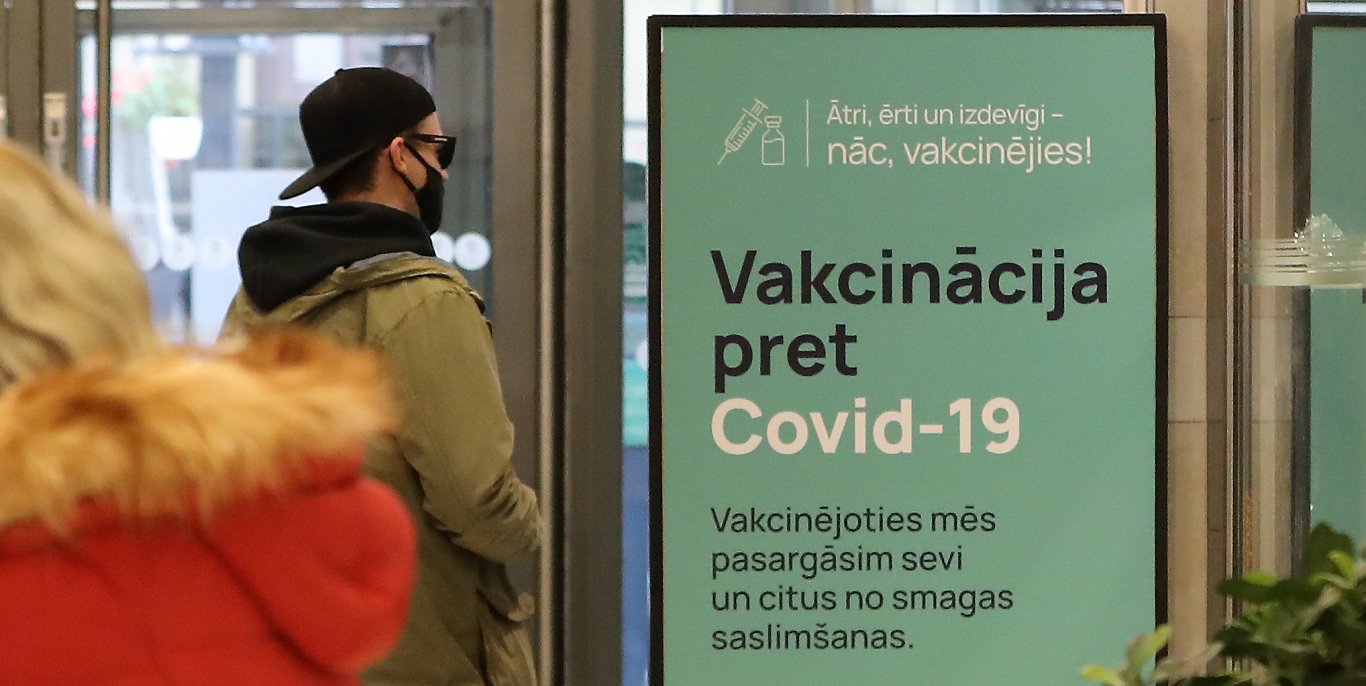Disease Prevention and Control Center (SPKC) spokeswoman Inga Vasiļjeva told Latvian Radio that vaccination of teenagers has been on the rise since summer.
"At present, age groups 12-15 and 16-17 continue to have the same upward trend as it was in the summer. In these age groups, the average percentage of vaccination reaches 42% in the 16-17 group and in the 12-15 group there are 25% fully vaccinated young people. The highest concentration of vaccinated young people is in the central part of Latvia – around Riga. The highest percentage of vaccination – 73% – is in Mārupe."
Latvian Radio contacted Mārupe State Gymnasium. Deputy Director for Education Andžela Sokolova said that 56% of 12-14 year olds and 66% of pupils aged 15-18 were vaccinated. Motivation is most often wanting to participate in social life.
"It's important for them to participate in different events. It's important for them to attend those lessons that are important to them. We have a lot of athletes in school who participate in competitions who go abroad. [..] In-person learning is better than remote, and they prefer it when they are with classmates," Sokolova said.
Young people showed a lot of activity before the beginning of the new school year, Anita Kamenščikova, head of several vaccination points in Latvia. Kamenščikova said that it was easier to work with young people especially in recent weeks.
"There were very motivated young people who said - yes, they want. They know why they want it – they want to meet with their schoolmates. And there were no such negative moments that I was forced, I don't want, and other conflicts on the matter. Moms came with their kids. I was in Ogre this Saturday, there was a mom with a 12-year-old child. She said her daughter is a dancer, wants to participate in public life and so she is vaccinating. It is certainly more positive on the part of young people," said the medic.
Not all regions have a high level of vaccination. Like in the adult population, the lowest coverage among young people is in Latgale.
Pēteris Tretjuks, principal of the Viļāni Secondary School said: "The vaccination of pupils on our side in Viļāni is not too topical. We didn't talk about it at all in the summer, but at the moment I think maybe a few dozen out of a total 412 pupils have been vaccinated. We have organized conversations in older years but students are very reserved."
In Daugavpils Secondary School No. 9, around 30 out of 400 pupils aged 12 and over are vaccinated.
"It's mostly the overall public attitude in our region. Given the general attitude, pupils aren't so active. But at the time of the previous restrictions, one of the biggest reasons why children wanted to vaccinate was the possibility not to wear masks in educational establishments. That motivation was significant, there was progress. At least ten people got vaccinated for this reason," said Arturs Fedotovs, principal of the school.
But it is no secret that one of the main factors why a young person chooses or does not choose to vaccinate is the attitude in the family. Children under 14 without parental permission and presence have no opportunity of receiving the vaccine. This also explains that only a quarter of the pupils in this age group have received their shots. They sometimes copy their parents' opinions, but sometimes they think the opposite, but they are afraid or do not have the permission of their parents. The parent organization “mammamuntetiem.lv” also receives messages about parents who prevent children from getting vaccinated.
"The young people have said they'd like to get vaccinated, but they're afraid of what parents will say. Scared to talk about it because they see parents are against. But at the same time, the good news is that even more families have told us that teens are the ones who encourage vaccination. They want to get vaccinated and have persuaded their parents to vaccinate, "said Inga Akmentiņa-Smildziņa, head of the organization.




























